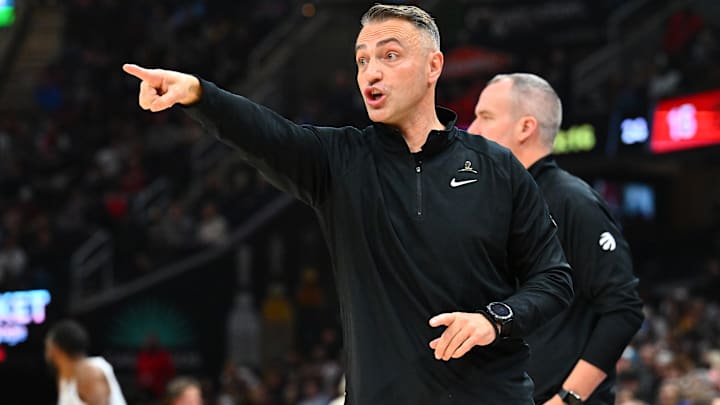December is consistently one of the busiest and most chaotic months of the year, and this sentiment holds true in the NBA landscape as well.
The NBA's Collective Bargaining Agreement (CBA) stipulates that free agents who join a team cannot be traded for a period of three months, or until December 15, depending on which date is later. While trades involving players outside of this category can begin before December 15, most teams start to actively explore the trade market once this date has passed.
As the trade market looms large on the horizon, the Toronto Raptors will undoubtedly be preparing to navigate the landscape ahead. With the potential for significant roster changes, it's crucial for the Raptors front office to take strategic steps to prepare.
Did the Raptors vets leave a good impression?
A pivotal element in the Raptors’ trade strategy hinges on the performance of their veteran players. With trade discussions becoming increasingly frequent as the season progresses, the ability of Kelly Olynyk, Bruce Brown, Davion Mitchell, and Chris Boucher to garner interest from rival teams is vital. Each veteran holds the potential to be a significant asset; however, their on-court contributions in the early season will ultimately determine their value.
The importance of showcasing skills cannot be overstated, especially for Olynyk and Brown, who remain sidelined due to injuries at this juncture. Their health and performance upon return will be crucial in building intrigue among potential suitors. For the Raptors, it is essential that these players take advantage of every opportunity to demonstrate their capabilities.
A few stellar performances could ignite conversations around them, transforming their current statuses from injury-riddled question marks to valuable trade assets.
In an unforgiving league where every game matters, the Raptors need their veterans to step up and highlight their strengths quickly. As time passes, the trade market will only become more competitive, making it imperative for players to deliver impactful performances. If they fail to do so, the Raptors risk losing significant negotiating leverage.
The ability to entice rival teams with compelling displays on the court could mean the difference between securing a mediocre return and landing a transformative trade package that propels the franchise toward its long-term goals.
Deciphering who fits long-term plans and who doesn’t
Understanding the dynamics of Toronto's roster in relation to its future is a crucial task for the Raptors' front office. The team must carefully assess which players align with its long-term vision and which may no longer fit into those plans. This evaluation is particularly vital during a rebuild, as the Raptors aim to establish a strong foundation for the future.
Striking the right balance between nurturing emerging talent and retaining experienced players can significantly influence the team's trajectory moving forward.
Players like Jakob Poeltl have become cornerstones of the Raptors' identity, providing both skill and stability. At the same time, consistent rotational players Davion Mitchell and Chris Boucher present intriguing trade opportunities should the Raptors choose to pivot from their current direction. The ongoing assessment of these players' performances will directly influence the team's roster decisions and shape its future landscape.
The overarching question remains: will the current veterans stay part of the Raptors’ core as they navigate through a rebuilding phase? Their experience and leadership can play a pivotal role in mentoring younger talent, accelerating their development and integration into the league.
Playmaking and center depth is adequately addressed
Depth in both playmaking and the center position has become a significant concern for the Raptors this season. Injuries to key players and inconsistent performances have sparked uncertainty regarding the availability of certain roster members.
That said, the Raptors face a crucial decision: should they pursue trades to address these gaps, or look internally to elevate emerging talent?
The potential emergence of rookies like Jamal Shead, Jonathan Mogbo, and Jamison Battle could be crucial in addressing these challenges. The Raptors have historically prioritized the development of their young talent, and this season may present an ideal opportunity for these players to take on expanded roles. If given the chance, they could showcase their abilities and help offset the absence of injured or traded players, thereby providing essential depth to the team.
Additionally, there's an intriguing possibility that Ulrich Chomche could step up from the Raptors 905 to strengthen the center rotation. His performance in the G League may prove him to be a valuable asset, particularly if the Raptors choose to pursue trades.
Optimizing roster versatility and performance could mitigate the impact of trades, ensuring that Toronto remains a cohesive unit through the principle of addition by subtraction.
